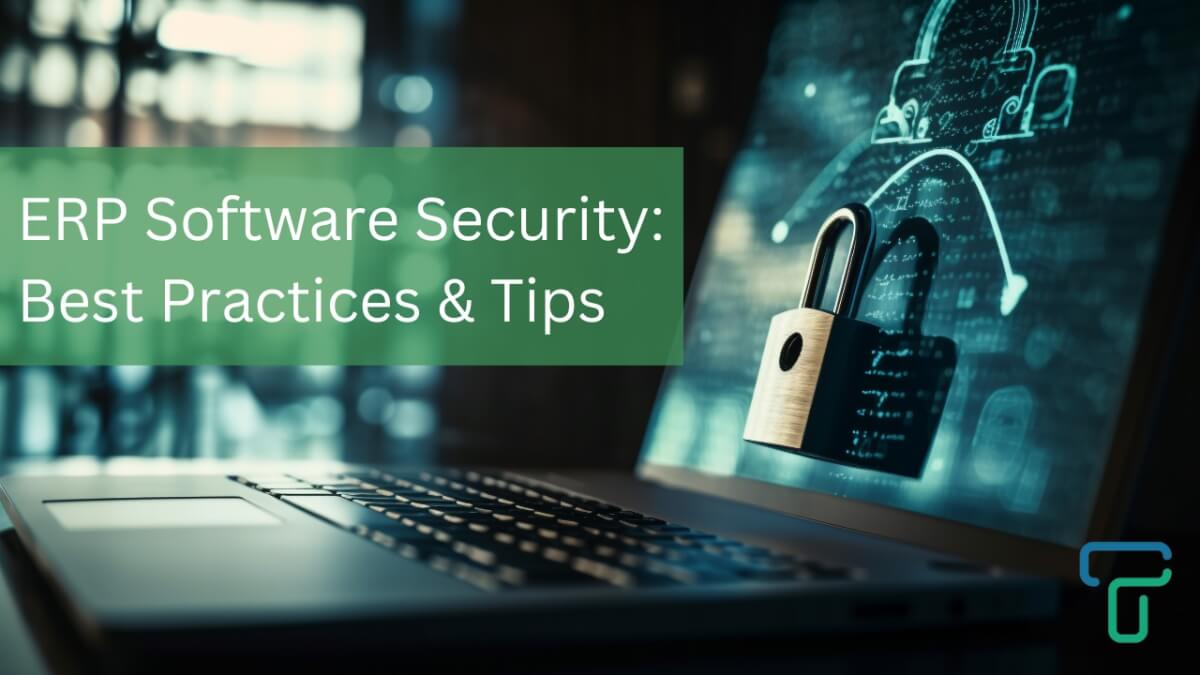Integrating Security In ERP Software Development: Best Practices And Tips
In business today, no matter the size or type of company, it’s crucial to have reliable tools to manage operations. At the core of these essential tools frequently lies an Enterprise Resource Planning (ERP) system. However, since these systems are used to handle sensitive company data, they are prey to serious security threats if not adequately protected. This is why bringing in security measures during ERP development is crucial. Let’s delve into it, shall we?
Understanding the Importance of ERP Security
ERP systems, by definition, serve as a central hub for storing, managing, and analyzing critical business data. They streamline workflows between different departments, automate routine tasks, and improve decision-making.
With such a vast amount of critical data, an unprotected ERP system can be a data breach waiting to happen. This could translate into not just monetary losses, but reputational damage too. These factors underscore the significance of integrating security into ERP development.
The Need for Security Integration in ERP Development
Insecure ERP systems can be detrimental to businesses. Just think about the havoc a security breach could cause: compromised customer data, disrupted operations, and loss of trust among clients. On the flip side, integrating security measures during ERP development has its advantages. It can lead to minimized system vulnerabilities, improved data privacy, and increased overall system integrity.
ERP Security Challenges
Implementing ERP security can be tricky. Businesses often face challenges like poor access control, lack of regular updates, and weak data encryption. Remember the major ERP software breach at a global toys company, resulting in stolen credit card information of millions of customers? You wouldn’t want a repeat of that, would you? Thankfully, with appropriate measures, you can keep such glaring security challenges at bay.
Security Features to Consider in ERP Development
- Access Control
Access control, i.e., determining who can access what within the ERP system, is our first line of defense. You would want to implement role-based access controls and monitor user privileges regularly. Remember, fewer the people with access to sensitive information, the better.
- Data Encryption
Data encryption, or transforming data into code to prevent unauthorized access, is another critical security feature you should consider. Just make sure you’re using strong encryption standards and algorithms. After all, you don’t put a cheap lock on a treasure chest, do you?
- Security Patches and Updates
Lastly, don’t overlook the power of security patches and updates. Keep your ERP software up-to-date to fix any existing security vulnerabilities. It’s like an annual health check-up routine but for your ERP system!
Best Practices for Integrating Security in ERP Development
- Secure Coding Practices
Secure coding isn’t just about writing codes that work, but also writing codes that resist attacks. You can think of it as adding extra padding to your ERP system to absorb any potential security shocks.
- Regular Security Testing
Security testing should be a no-brainer. It’s all about identifying weak points before attackers can find them. Frequent security testing can keep your ERP system robust and unyielding.
- Employee Training and Awareness Programs
No matter how strong your ERP security is, it won’t work unless your employees follow them. Hence, employee awareness programs can go a long way in strengthening your overall security apparatus. It’s like saying: Don’t just lock the door, but also ensure everyone knows its importance.
Summary and FAQs
After stitches of important discussions, we circle back to the importance of integrating security in ERP development. It’s crucial, and it’s a must-have pill for every ERP system.
FAQs
Will there be performance issues when integrating security measures into ERP?
While security measures may add an extra layer of processes, they actually improve the system’s performance by eliminating security-related disruptions.
Are there specific security practices to follow for cloud-based ERP systems?
Yes, cloud-based ERP systems have unique security considerations, like measures to ensure data integrity during transfer or multi-factor authentication.
How do I ensure all employees comply with the security measures in place?
By establishing guidelines and holding regular training sessions, you can create a culture of compliance.
Final Thoughts
Securing your ERP system isn’t rocket science, but it does require a dedicated effort. Get started right away if you haven’t already, because when it comes to security, there’s no time like the present! ERP security is a journey, not a destination. Keep walking the road, and you’ll build a system worthy of trust.


